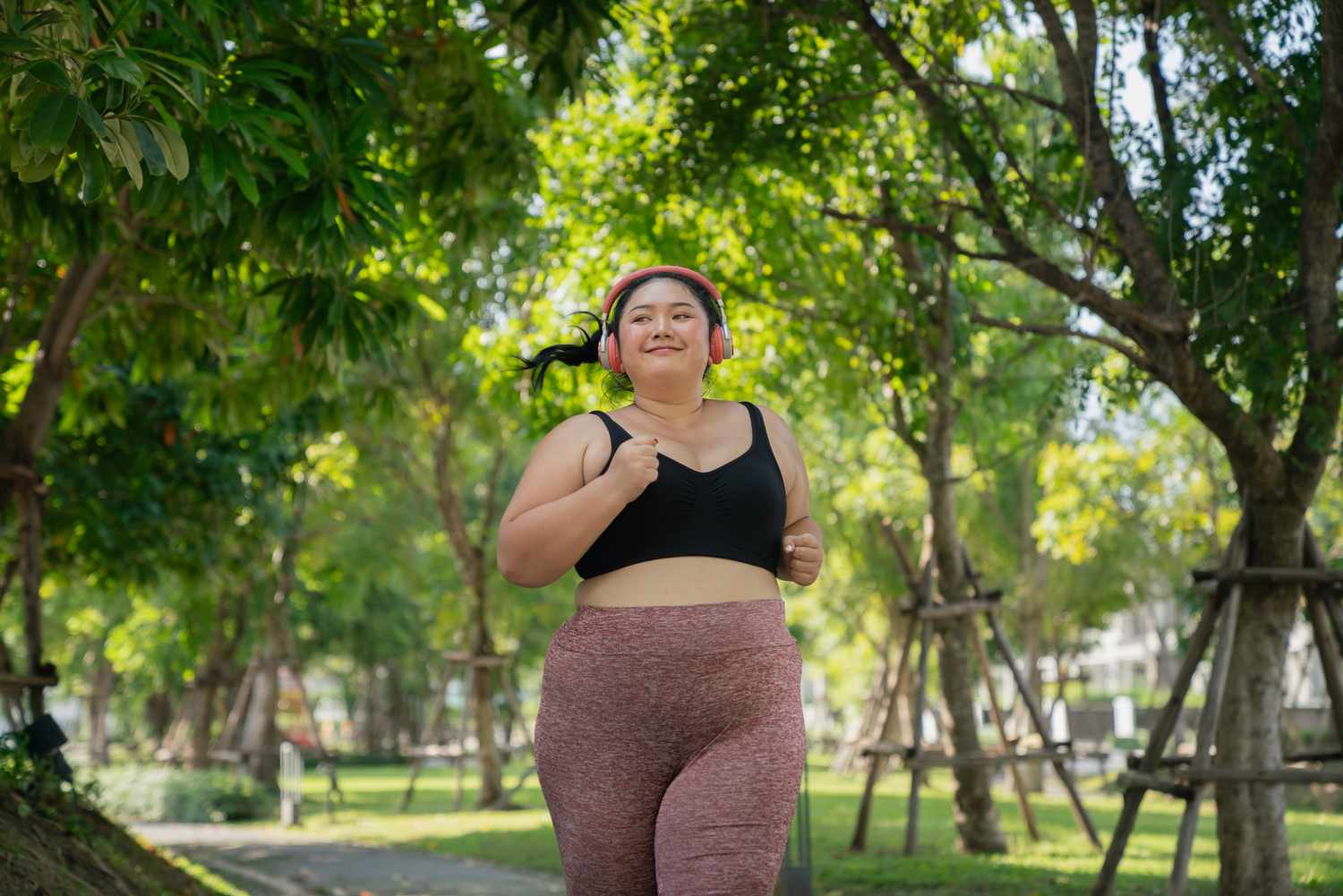Physical activity can help you fall asleep faster and sleep better—but timing matters. Exercising too close to bedtime may make sleep problems worse.
“Exercise, especially vigorous or high intensity, is associated with the release of more stress hormones and sympathetic stimulation of the body: those high levels of epinephrine, norepinephrine, and cortisol make it hard to sleep,” John P. Higgins, MD, MBA, a sports cardiologist at McGovern Medical School at UTHealth in Houston, told Verywell in an email.
Research shows that hitting the gym at night may reduce total sleep time. But, performing lower-intensity activities a few hours before bedtime—like yoga or stretching—increases melatonin, reduces stress, and lowers blood pressure and body temperature, which may promote sleep, Higgins added.
The Best Time To Exercise Is Based on Your Internal Clock
Early risers may have an edge, as sticking to a morning workout has many benefits for sleep and overall health. A 2020 review found that consistent morning exercise enhanced weight management in adults with obesity. Weight loss can help lower the risk of obstructive sleep apnea, a disorder in which a blocked airway makes you temporarily stop breathing during sleep.
Getting outside and exercising in the natural morning light also keeps you more awake and can help improve your mood, Aruna Rao, MD, a neurologist and sleep medicine specialist at Johns Hopkins Medical Center, told Verywell.
Light exposure helps regulate your body’s internal 24-hour clock (circadian rhythm). However, that doesn’t mean every person should wake up at 5 a.m. to go for a sunrise run.
“For every person, the time to exercise is based on what your circadian rhythm is. For example, if someone’s circadian rhythm is 9 p.m. bedtime and 5 a.m. rise time, then morning is a great time to exercise,” Rao said.
Most adults should get between seven to nine hours of sleep each night. If you typically stay up until midnight, though, getting up for a 5 a.m. workout would mean you’re not getting enough sleep. You can exercise in the afternoon as long as it’s not too close to your bedtime, she added.
How Long Before Bed Should You Stop Working Out?
For most people, doing strenuous exercise within four hours of bedtime can disrupt sleep due to the increase in stress hormones that keep the brain awake, said Sairam Parthasarathy, MD, director of the Center for Sleep and Circadian Sciences at the University of Arizona Health Sciences.
However, not everyone can exercise before it gets dark. Depending on your work schedule and other responsibilities, you might only have time to work out in the evening. In that case, try to end physical activities at least two hours before your bedtime, Rao said.
Your core body temperature naturally drops as you prepare for sleep. However, exercise raises body temperature, which may disrupt this process.
“If you’re going to exercise and then eat and then go to sleep, that’s not good either because you really want to eat three to four hours before bedtime. Your circadian clock is very sensitive to temperature and food, so it might delay your bedtime and affect the quality of your sleep,” she added.
Some Evening Exercises Might Promote Sleep
While sleep experts generally recommend exercising earlier in the day, some evidence suggests that exercising at night won’t disrupt your sleep. A recent study found that doing short bodyweight exercises at night—like squats and calf raises—can help you sleep longer. Specifically, standing up and spending three minutes doing these exercises every 30 minutes.
Plus, a 2019 meta-analysis of 23 studies found that, compared to not exercising, a single session of evening exercise did not negatively affect sleep. However, doing a vigorous workout less than an hour before bed did seem to harm sleep. Another review published in 2022 found that evening exercise doesn’t disrupt sleep in healthy adults.
“We are all different and we should experiment with times and choose the best time. Even exercising close to bedtime (< 4 hours) could work for some individuals, and if so, they should fit that time into their exercise schedule,” Parthasarathy added.
What This Means For You
It’s best to get into the habit of doing vigorous exercise earlier in the day. That way, stress hormones from intense workouts are less likely to disrupt your sleep. If you can’t fit a morning workout into your day, aim to exercise at least four hours prior to your bedtime for better sleep.


:max_bytes(150000):strip_icc()/StephanieBrownnewheadshot-e5ca9ba2a404491384e9300a7871f190.jpg)



